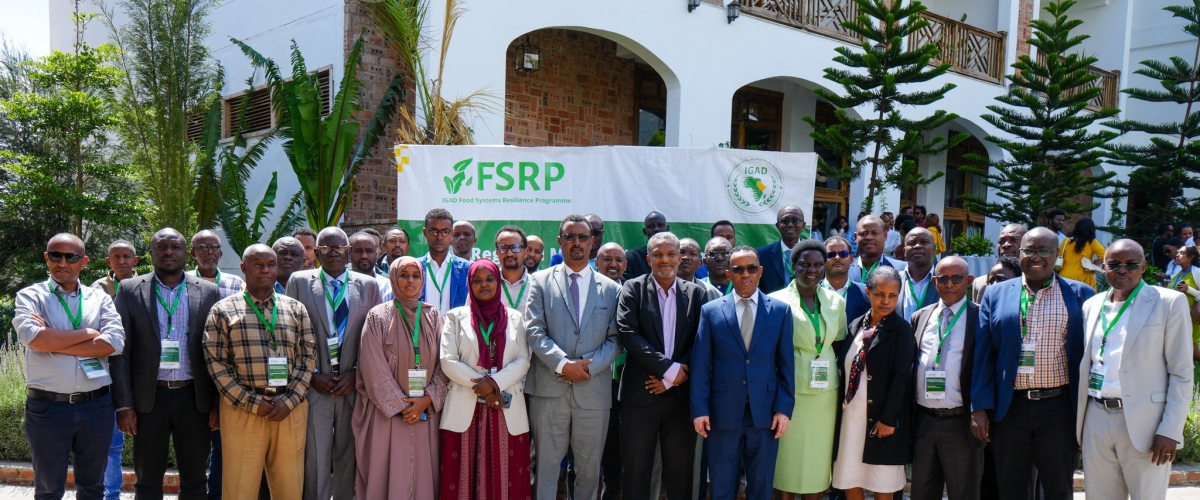
The Centre for Coordination of Agricultural Research and Development for Southern Africa (CCARDESA) joined representatives from East Africa, regional institutions, and international partners in Bishoftu, Ethiopia, to mark the official launch of the Digital Agro-Climate Advisory Services (DACAS) Knowledge Network for the IGAD region.
The three-day event, held from May 5–7, 2025, was organized by the Intergovernmental Authority on Development (IGAD) in partnership with AICCRA. This is part of the broader Food Systems Resilience Programme (FSRP) funded by the World Bank. While IGAD serves as the regional coordinating body for FSRP in Eastern Africa, CCARDESA holds the same mandate for Southern Africa, ensuring that programme implementation is aligned with regional priorities and national food system resilience goals. Under this arrangement, CCARDESA plays a critical role in the design, coordination, and scaling of DACAS within the Southern African Development Community (SADC) region.
The DACAS network is envisioned as a regional public good—a collaborative platform that brings together ministries of agriculture, meteorological services, research institutions, and technical partners to deliver timely, actionable agro-climatic information. These services empower farmers and pastoralists to make informed decisions related to crop planning, pest management, and resource use, ultimately supporting climate-resilient agriculture.
As part of its contribution under FSRP, CCARDESA supports DACAS through:
- Strengthening institutional capacity in national agricultural research and meteorological systems;
- Promoting co-development of advisory services tailored to local agro-ecological and socio-economic contexts;
- Facilitating cross-country learning through regional knowledge exchanges and communities of practice;
- Supporting digital innovations and platforms that improve access to agro-climate information and decision-support tools.
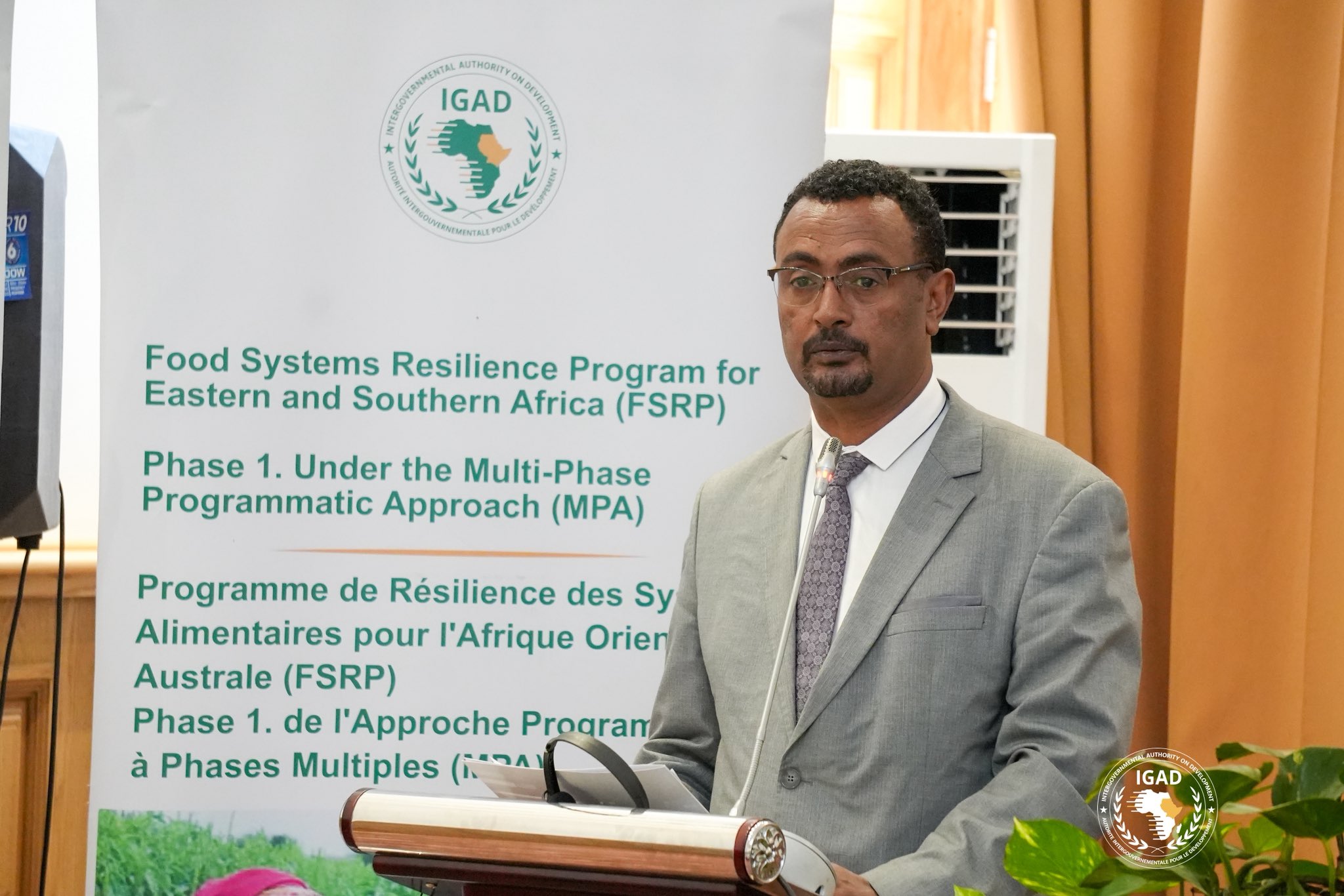 | 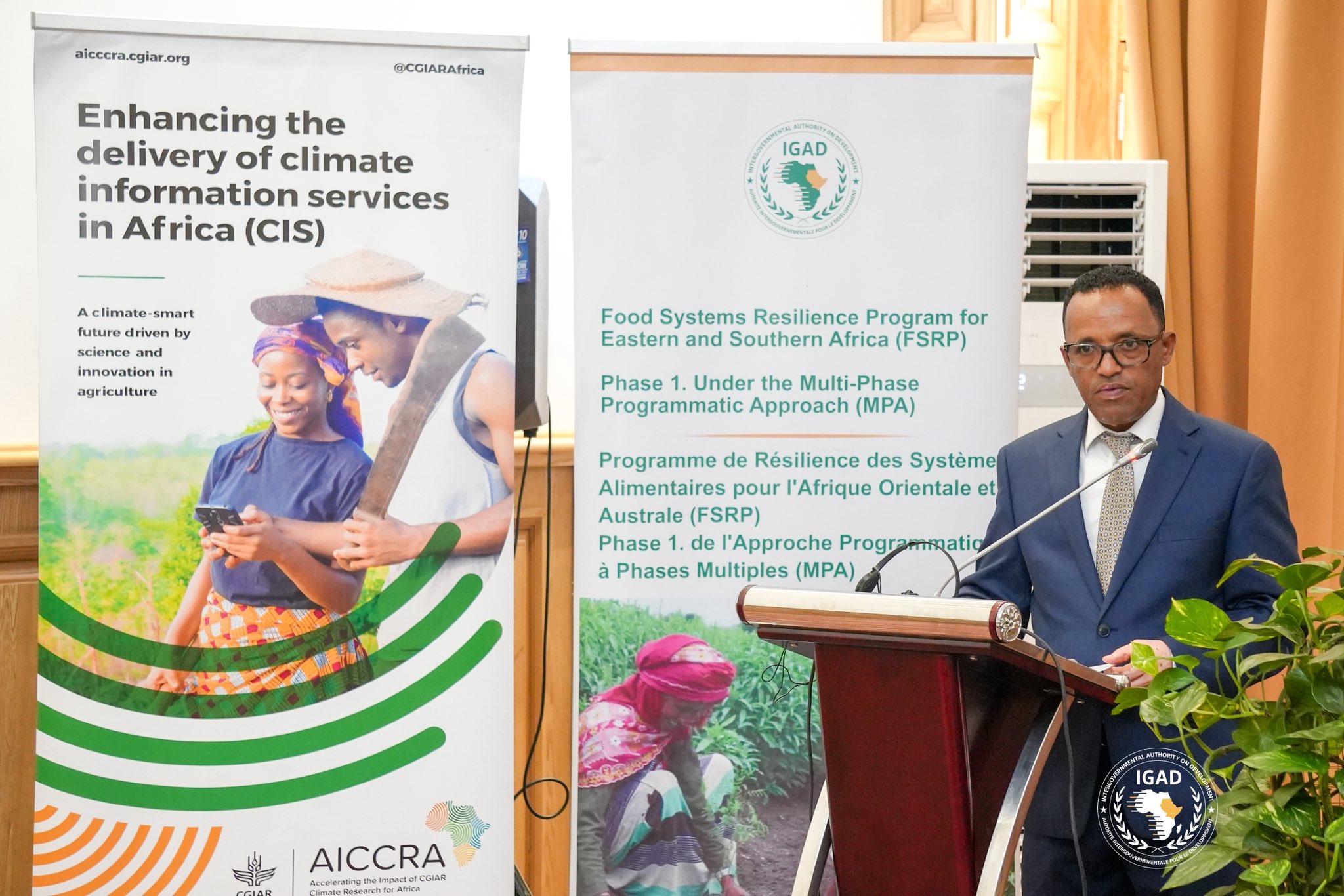 | 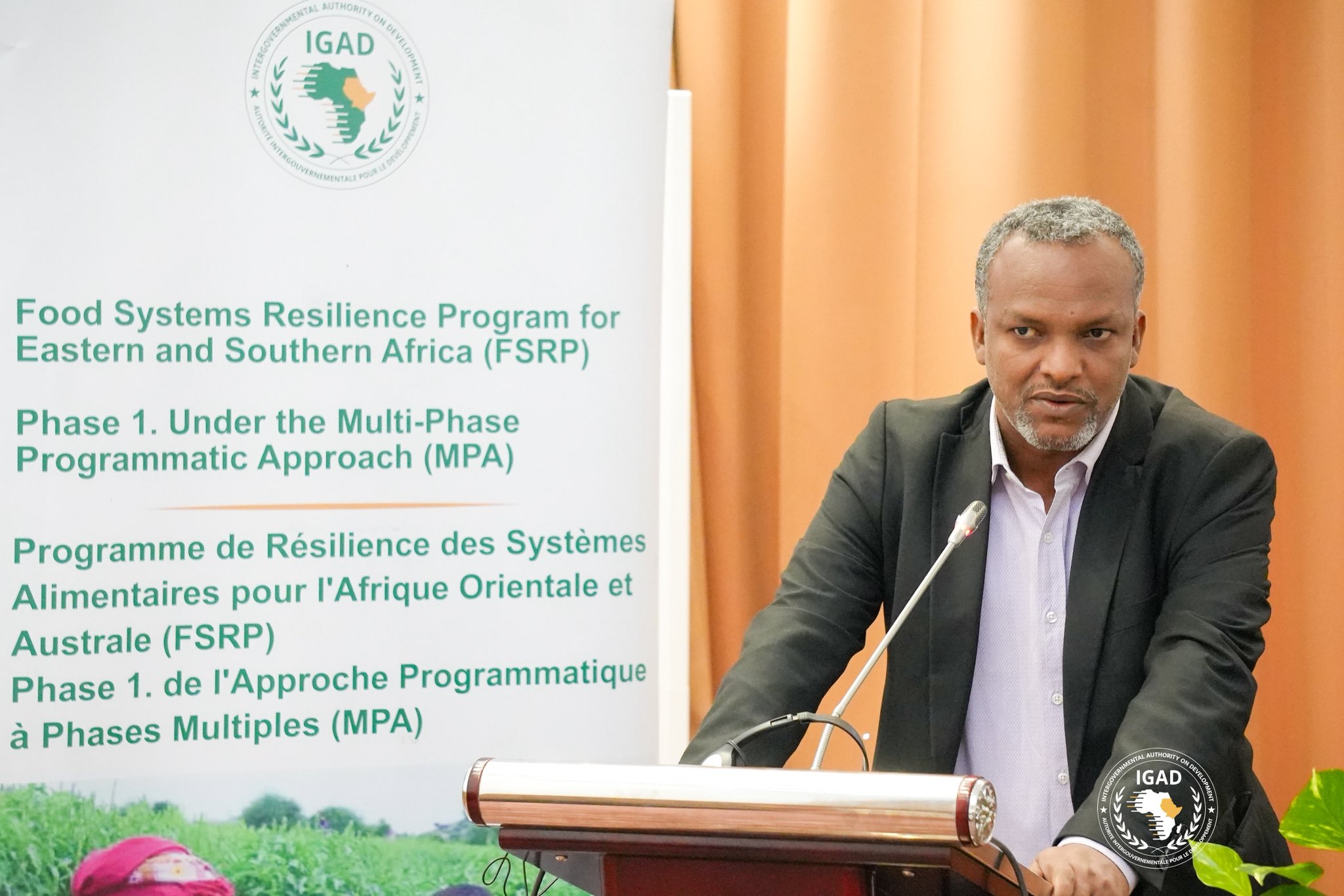 | 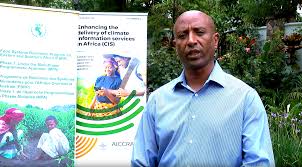 |
In his opening address, Dr. Meles Mekonnen, Ethiopia’s State Minister for Agriculture and Horticulture Development, emphasized the importance of regional cooperation to confront climate challenges. “This network is a strategic tool for advancing climate-smart agriculture across the region. With platforms on DACAS, and support from partners such as CCARDESA, we can bridge knowledge gaps and ensure no farmer is left behind,” he said.
Abebaw Bihonegn, IGAD Head of Mission in Ethiopia, reaffirmed IGAD’s commitment to food and nutrition security and the sustainable management of natural resources. “Digital Agro-Climate Advisories are pivotal in achieving our vision. As IGAD, we are delighted to be launching this regional network,” he said.
Meanwhile, Daher Elmi Houssein, IGAD’s Director for Environment and Natural Resources, highlighted the need for strong inter-regional collaboration under FSRP. “Through close coordination with CCARDESA and other partners, we are laying the foundation for a continental approach to climate-resilient food systems,” he noted.
“AICCRA East and Southern Africa programme, along with our regional, national, and CGIAR partners, is proud to collaborate on the launch of the IGAD DACAS Knowledge Network. Leveraging on our engagement in the digital agriculture sector, we hope to co-create a vibrant hub that brings together various stakeholders in the IGAD member states by fostering collaboration and enabling timely, reliable, and actionable learning and sharing of climate and agricultural information and services that build food systems resilience in Africa.” – Dr. Dawit Solomon, AICCRA Eastern and Southern Africa Program Leader.
CCARDESA’s participation at the DACAS launch reflects a broader commitment to inter-regional collaboration, and underscores practical efforts to link Eastern and Southern Africa in tackling the shared challenges of climate change, food insecurity, and digital transformation in agriculture.
As the DACAS Knowledge Network takes root in Eastern Africa, CCARDESA will continue to engage with stakeholders across the SADC region to ensure that digital agro-climate services are inclusive, context-responsive, and widely adopted—reinforcing a shared vision of a resilient, food-secure Africa.
 |  |  |  |





